At Brandon Bioscience, we pioneer the research of marine based biomolecules and their application as crop based biostimulants. In recent weeks, our research team has published their 15th peer-reviewed scientific article. The latest publication on our PSI® 475 Precision Technology; “Transcriptome, Biochemical and Phenotypic Analysis of the Effects of a Precision Engineered Biostimulant for Inducing Salinity Stress Tolerance in Tomato” has been published in this month’s International Journal of Molecular Sciences.
Salinity is a significant challenge for agriculture as it affects about 20% of the world’s landmass and one-third of the land used for food production. High salt concentration in irrigation water can lead to negative effects on plant growth and development, which can reduce drastically crop yield and quality. At Brandon Bioscience, we are committed to developing biostimulants that can help plants withstand these challenging conditions. PSI® 475 is a precision-engineered biostimulant made from a combination of protein hydrolysate and Ascophyllum nodosum extract that can alleviate the damage caused by irrigation salinity stress in crops.
Our latest study integrated data from four levels of biological information, including phenological, physiological, biochemical, and transcriptome data from different leaf, stem, and root tomato tissues. Overall, PSI® 475 application resulted in a significant upregulation of genes related to osmotic regulation, ion homeostasis, photosynthesis, and other metabolic pathways. PSI® 475 activated ion toxicity avoidance mechanisms by restricting sodium translocation from roots to young leaves but promoting potassium accumulation in roots to cope with the harmful effects of sodium accumulation in salinity stressed plants. Leaf tissue of treated plants was characterised by an improved osmotic stress tolerance at the physiological level and was correlated with a higher content of osmolytes and overexpression of genes related to aquaporins. Leaf tissue, which is critical in providing carbon photoassimilates to developing fruits, also had an improved content of photosynthetic pigments and stimulated expression of genes involved in photosynthetic efficiency and chlorophyll biosynthesis.
The plant experimental design used in this study aimed to apply a saline irrigation solution for several weeks, mimicking agronomic scenarios where growers do not have access to high quality water and need to use water with high electric conductivity for crop irrigation during long periods. PSI® 475 increased yield in salinity stressed plants by 48% and closed the gap to within 3% of the yield of unstressed untreated plants. This performance clearly demonstrates that PSI® 475 is backed in a defined mode of action that combines transcriptome and physiological data with metabolite partitioning in different plant tissues resulting in long-term protective effects on salinity stressed tomato plants.
Read the full original research paper: https://brandonbioscience.com/explore/




